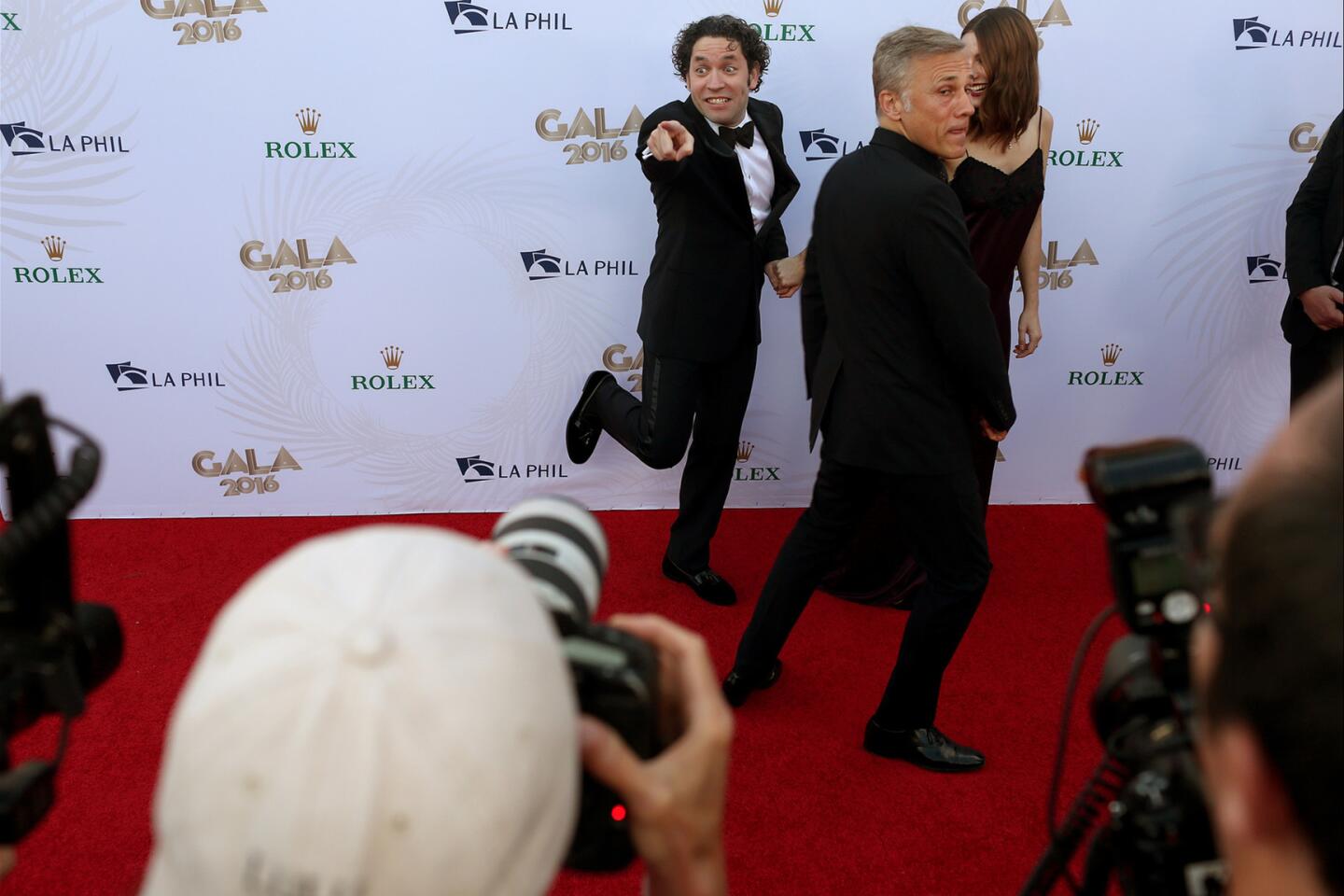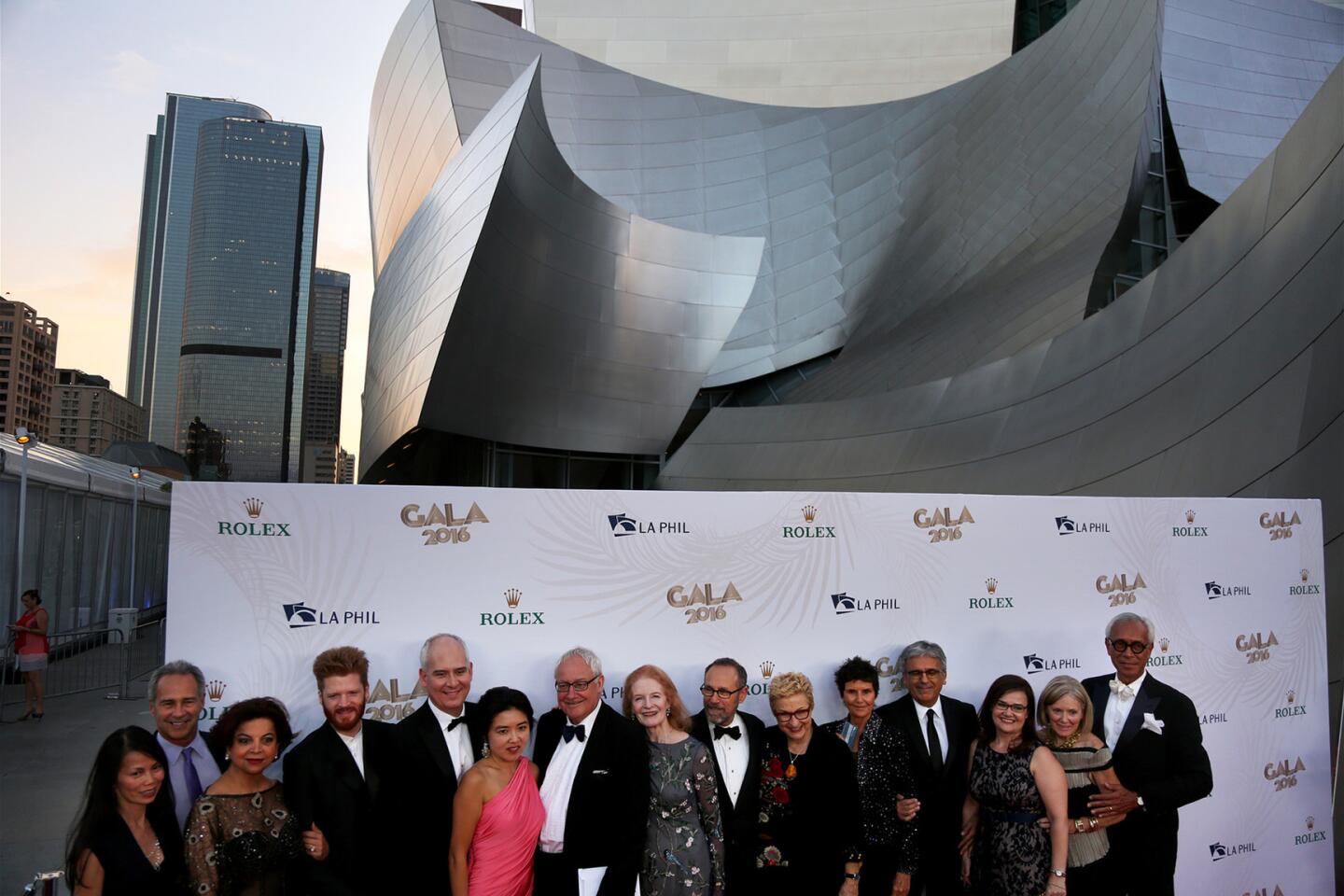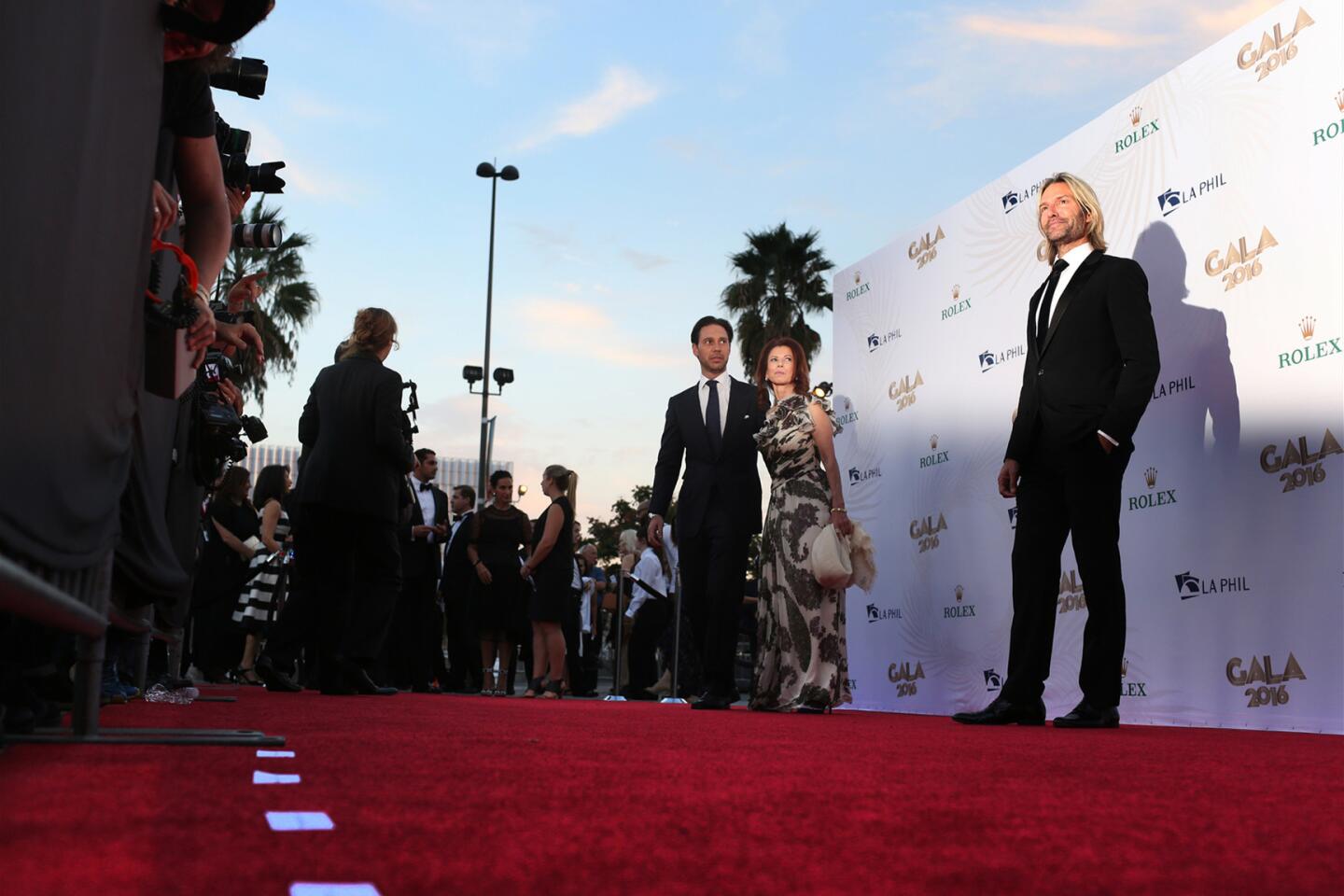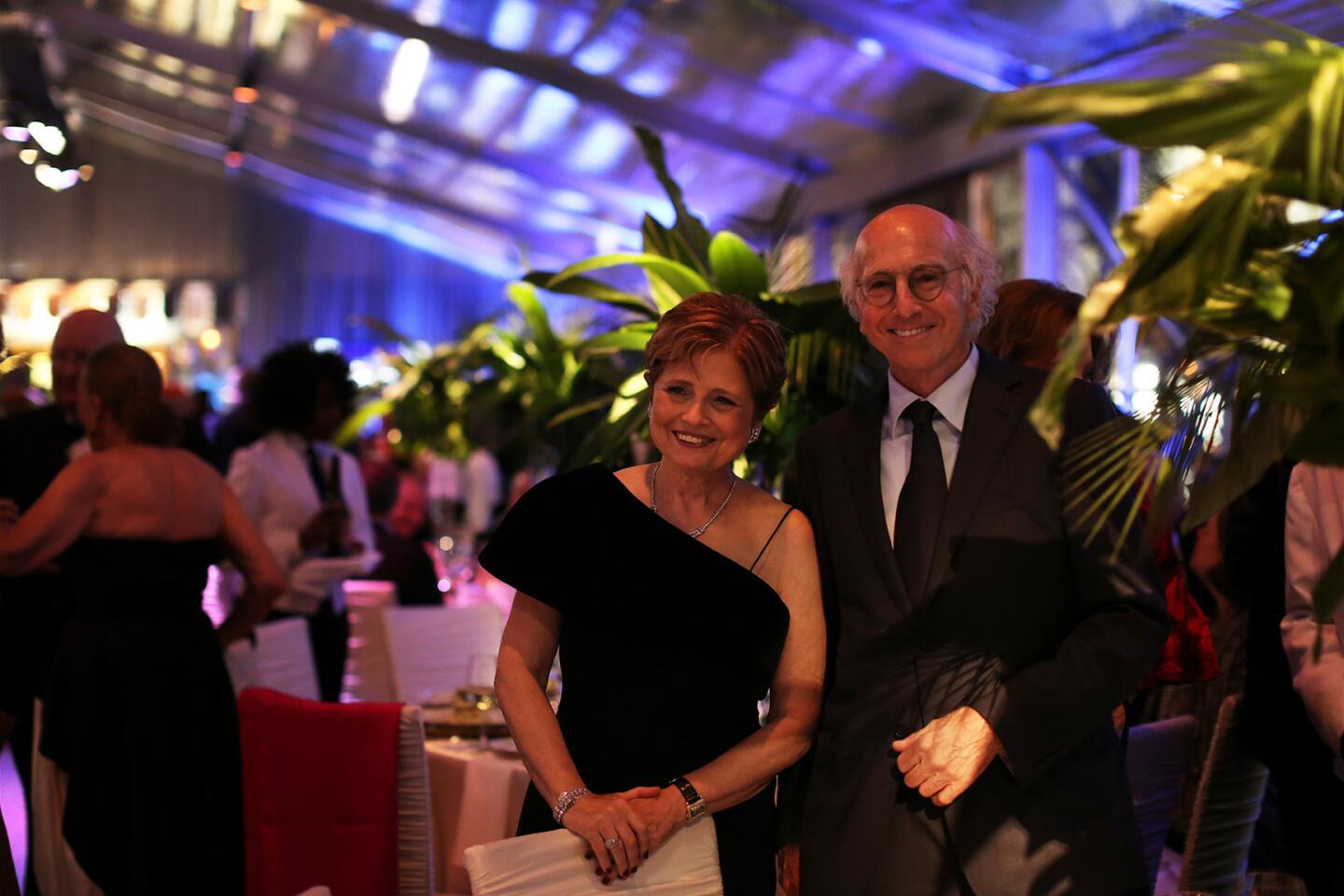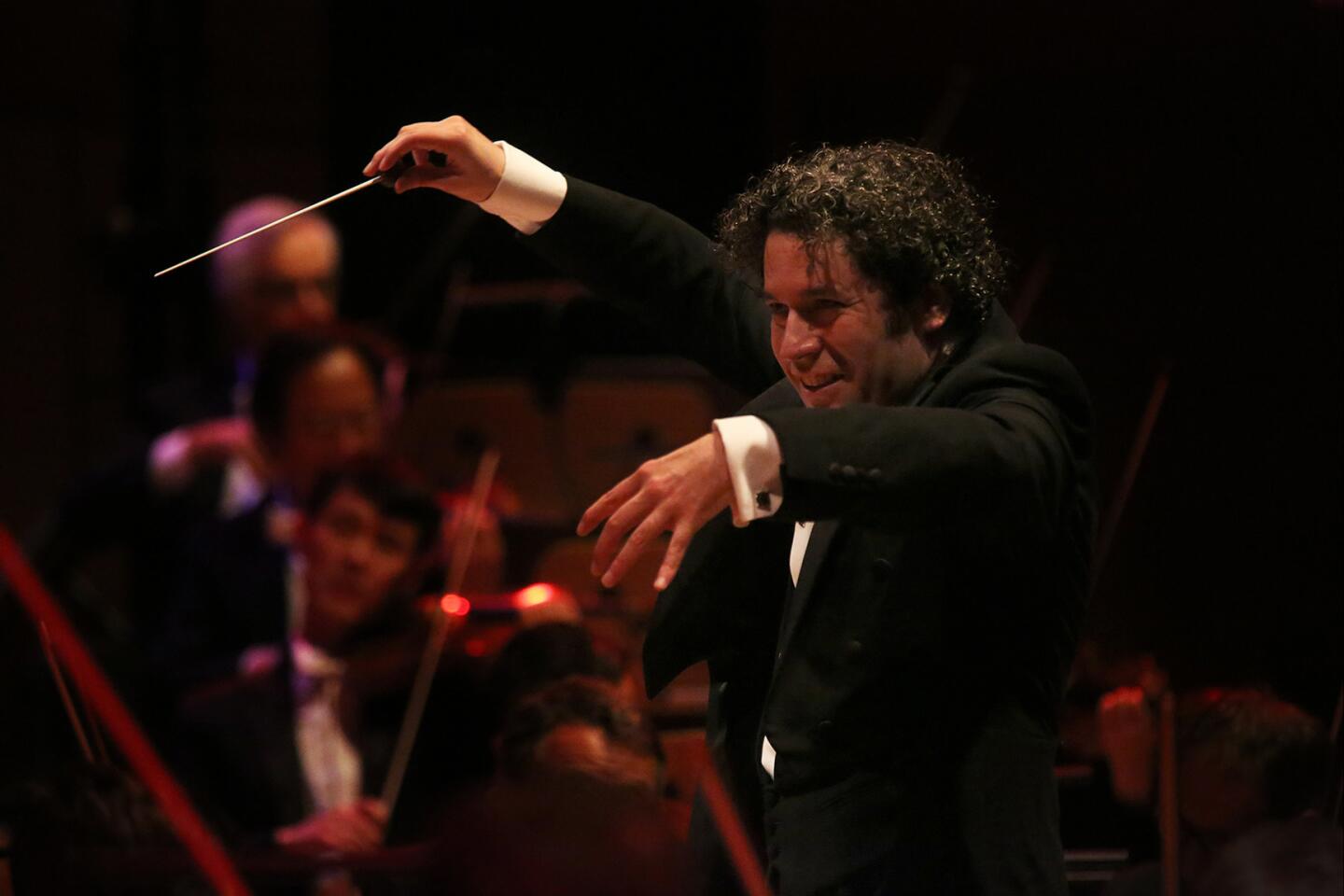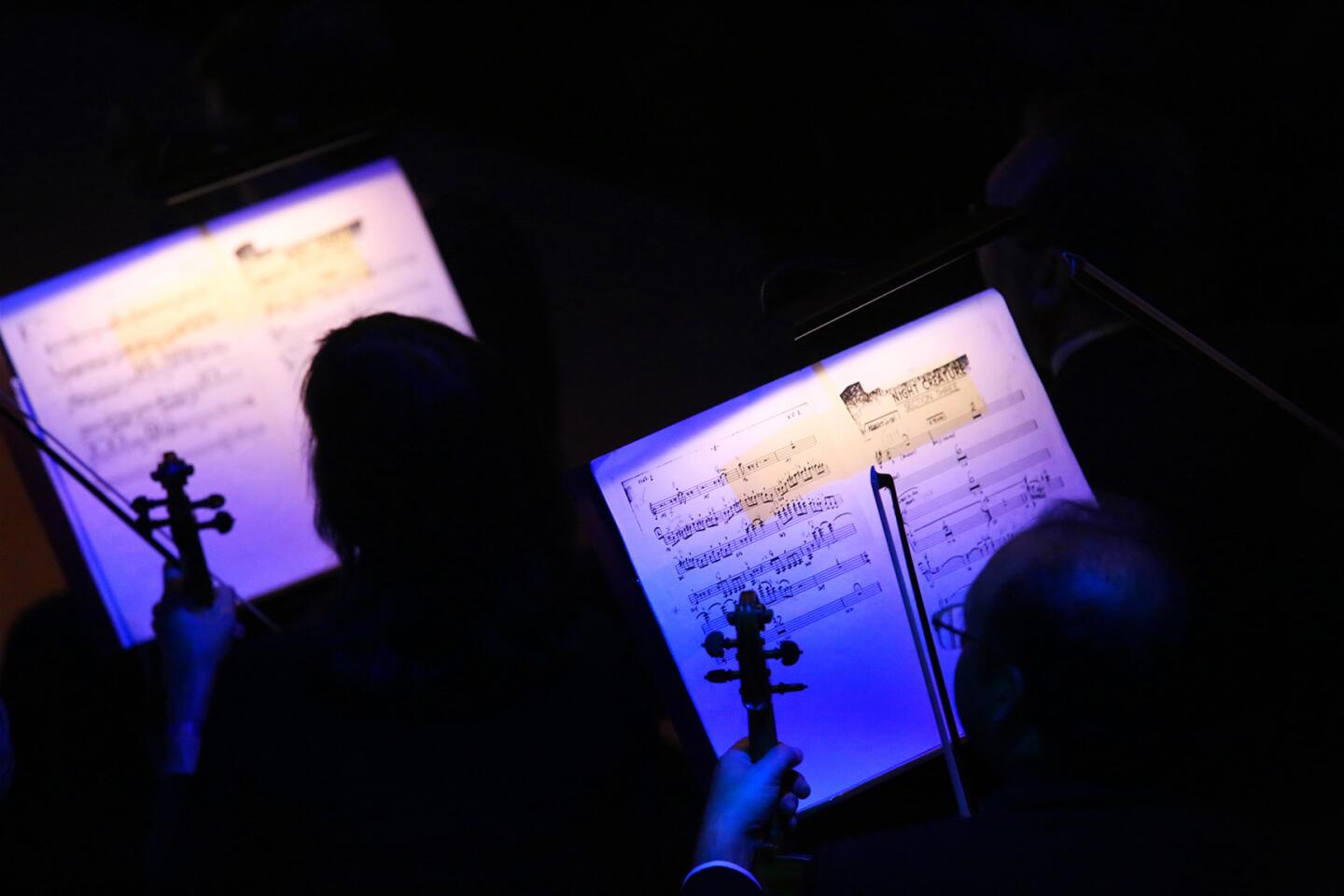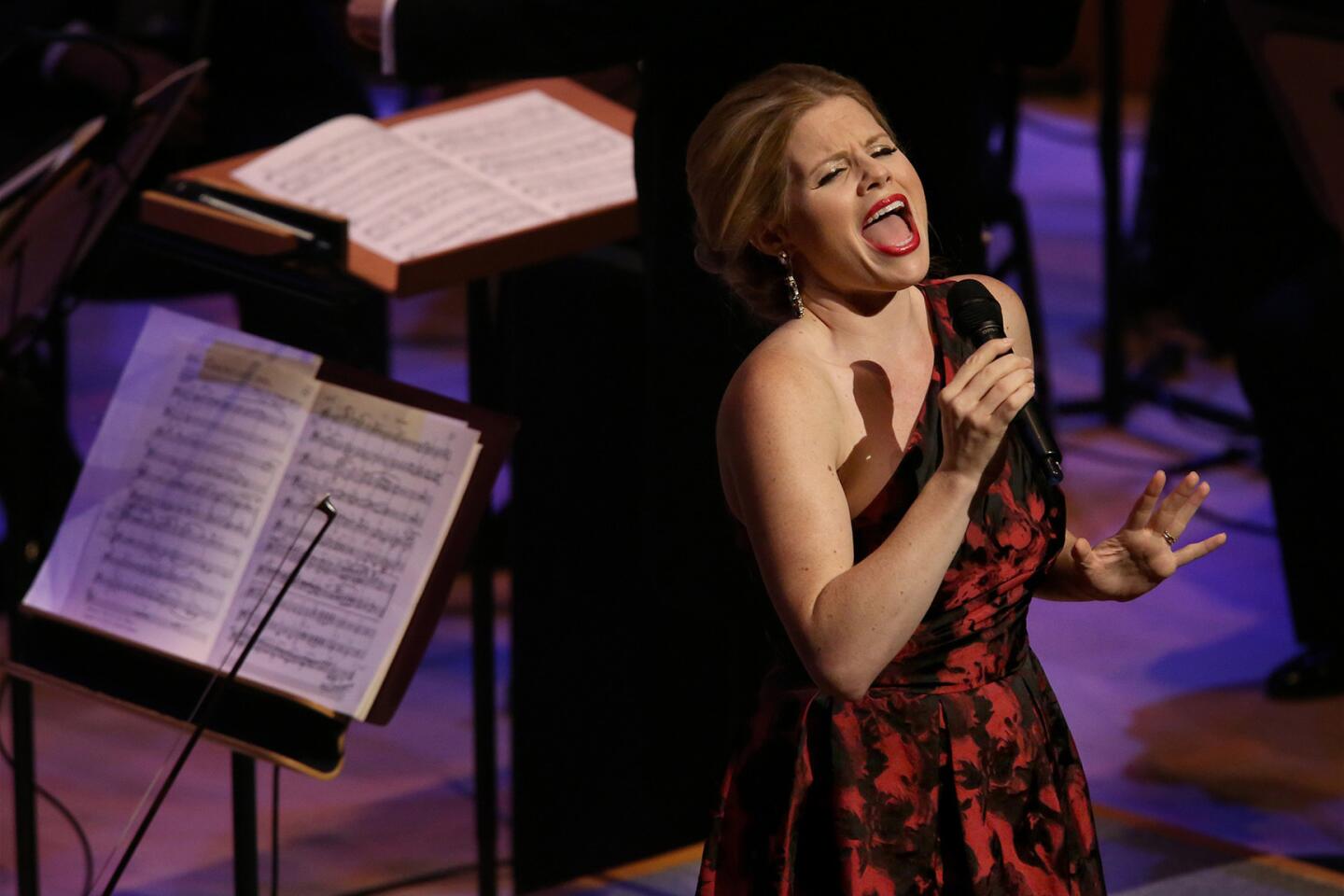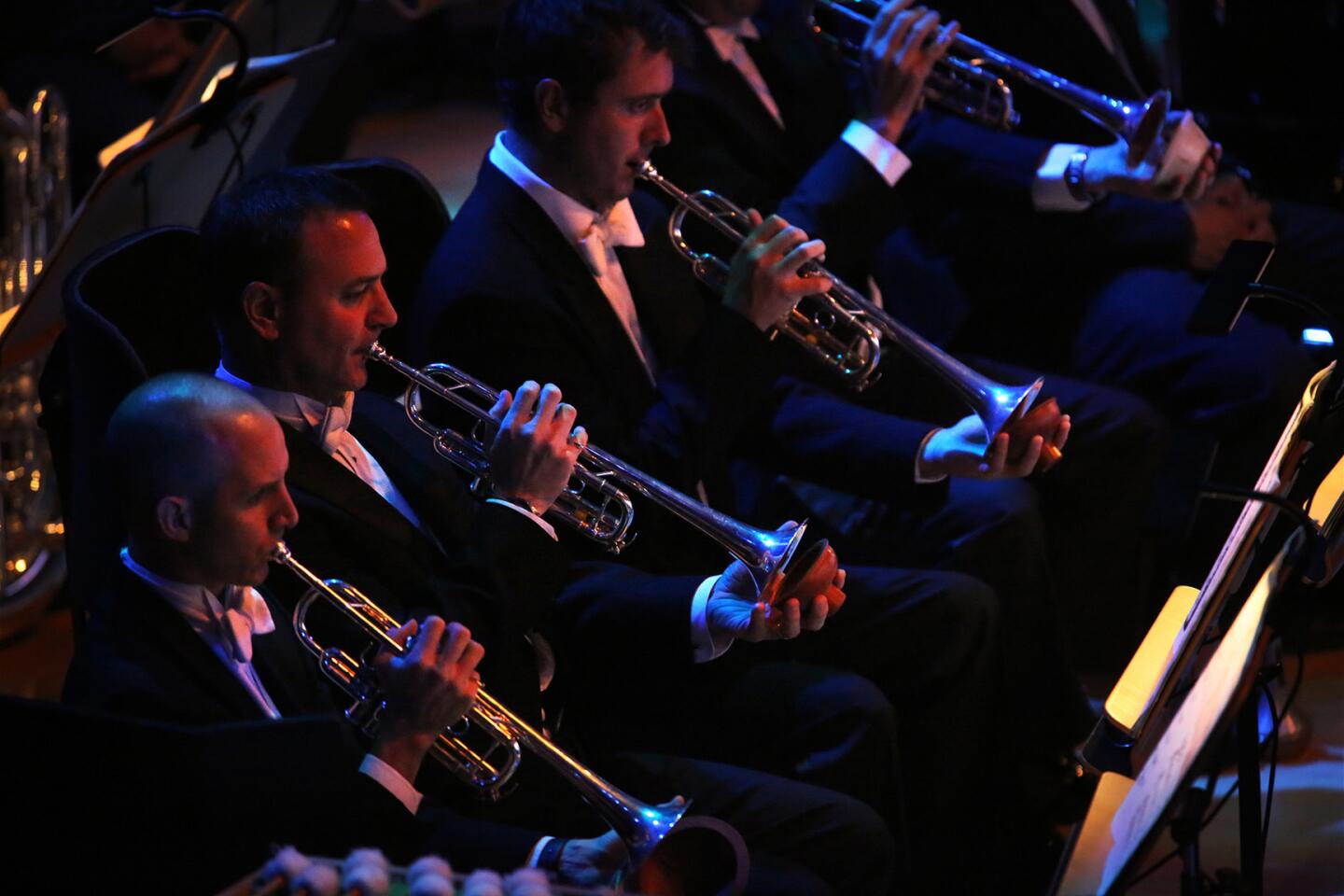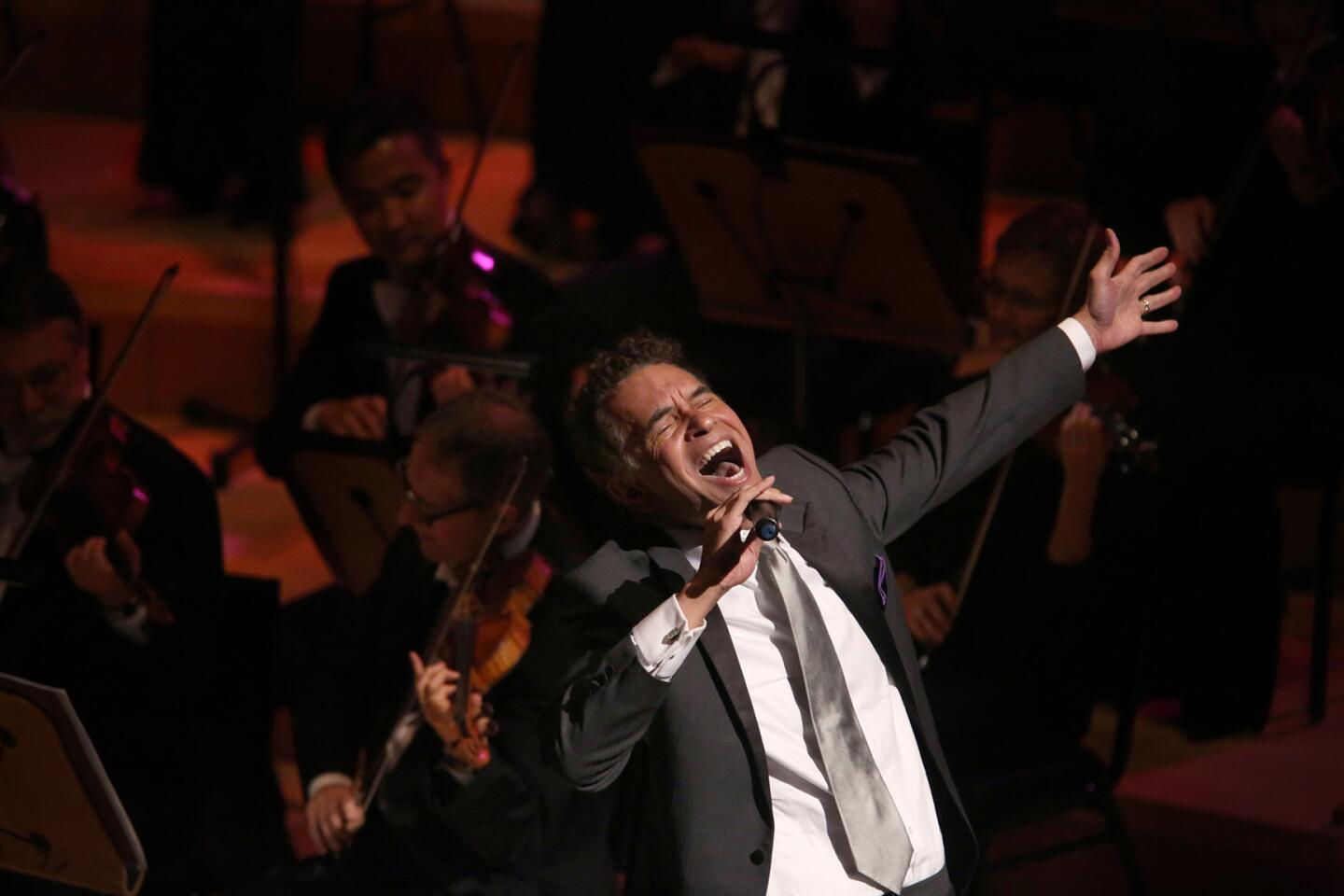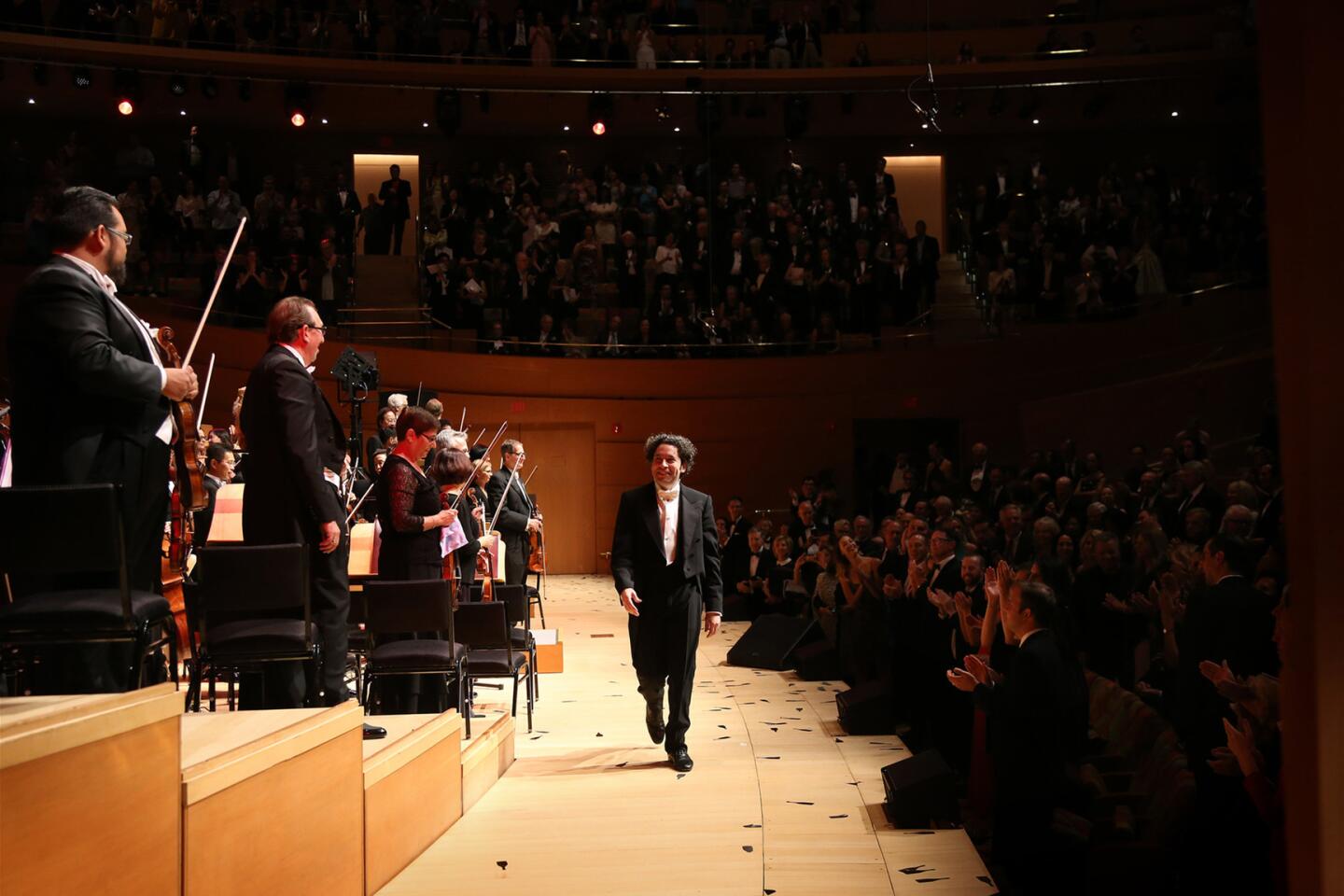Review: The L.A. Phil’s opening gala at Disney Hall finds Dudamel & Co. in full jazz swing
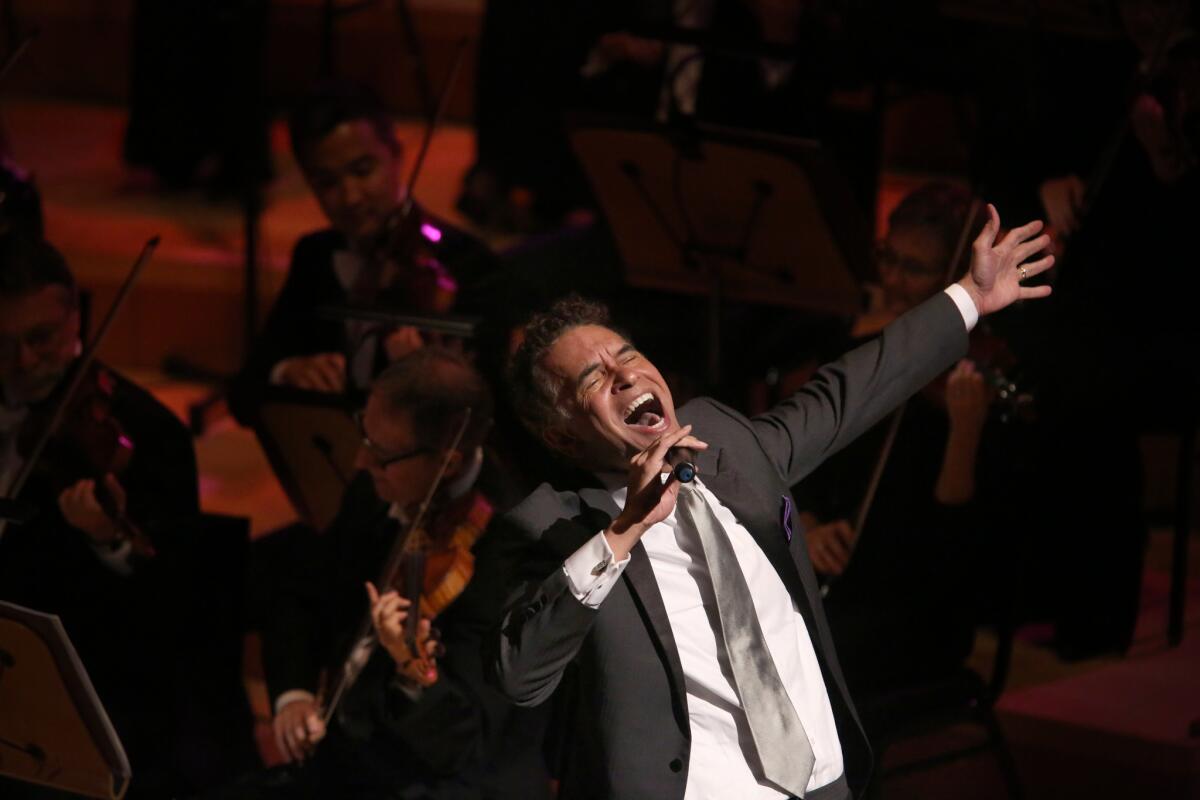
- Share via
A gala’s a gala. Who can ask for anything more?
Well, critics do all the time, and so, my emails show, do at least some concertgoers who complain of same old, same old with the annual galas that begin symphony orchestra seasons the country over. The star soloists tend to be overexposed, as does, for the most part, the commonplace repertory.
The Los Angeles Philharmonic, taking advantage of Walt Disney Concert Hall, has tried to be different. But it’s always a delicate balancing act. You don’t want to be too different and leave the regular concertgoers feeling like they missed something special. Even so, big donors — many of whom pay thousands of dollars to also attend the gala dinner (the proceeds of which go to support the L.A. Phil’s admirable educational programs, including Youth Orchestra LA) — deserve something special.
Tuesday night’s gala, the 13th in Disney Hall and the eighth for Music Director Gustavo Dudamel, was called “Gershwin and the Jazz Age.” It ended with “An American in Paris,” a carry-over from Dudamel’s 2011 Gershwin gala. There were other bits of symphonic George Gershwin and Duke Ellington, along with jazzy Leonard Bernstein. Broadway stars Brian Stokes Mitchell and Megan Hilty provided a handful of numbers from the Great American Songbook.
All in all that should make for a breezy, non-newsworthy, good enough time. For the most part it did. Dudamel affably addressed the audience, saying that for this music he prefers “to be sitting, drinking something, smoking something (cigars!).”
But a couple of things did stand out, for better and for worse. For better, two young players, rather than superstars, were selected as instrumental soloists. George Li proved the dazzling got-rhythm pianist in Gershwin’s “I Got Rhythm” Variations. The orchestra’s recently appointed principal clarinetist, Boris Allakhverdyan, was the equally dazzling, equally got-rhythm soloist in Bernstein’s Prelude, Fugue and Riffs for solo clarinet and jazz band. The L.A. Phil, close to Hollywood, cooks like few other major symphonic orchestras these days do. That’s all to be expected.
But it was the touch of Ellington that proved the evening’s revelation. Dudamel led only the middle movement, “Stalking Monster,” of Ellington’s “Night Creatures.” The full three-movement score for jazz band and orchestra has been all but ignored. Ellington recorded it in 1963 with something called the Paris Symphony Orchestra. The only significant orchestra to record it on an excellent Ellington album is the Hollywood Bowl Orchestra conducted by John Mauceri.
The movement starts with a piano (Joanne Pearce Martin) walking bass that sounds like the Duke stalking a pink panther. (Henry Mancini’s famous theme comes from around the same time.) The orchestra goes its own extravagant way, with crazy, fabulous jazz outbursts from violin, sax and trombone. Dudamel savored the extravagances. The L.A. Phil did everything right from the symphonic side and the jazz side.
Five years ago, balancing those sides in Gershwin gave Dudamel problems. In his “American in Paris” then he could be boisterous and he could be provide buoyant blues. It was either/or. But as he demonstrated with an unforgettable performance of “Rhapsody in Blue” at the Hollywood Bowl this summer, Dudamel now puts the two together. This American in Paris was faster, more easygoing, a better dancer, ready for stage and screen. It’s time to take the video of Dudamel’s now dated 2011 Gershwin gala off medici.tv, Amazon Prime and wherever else it can be found, and start all over again.
Enter into this environment, Stokes Mitchell and Hilty, amplified by vast arrays of speakers of all shapes and sizes in an effort to turn the greatest modern concert into something Broadway might accept on its own grossly amplified terms. Stokes Mitchell made up for that with two impressive production numbers. The orchestral arrangement of Ellington’s “I’m Beginning to See the Light” presented a lively mash-up that sounded like cartoon Rossini interrupted by jazz, a match made in Broadway heaven for Stokes Mitchell’s lightning-quick musical reflexes. He went a little over the top in Gershwin’s “It Ain’t Necessarily So” from “Porgy and Bess,” but he stunningly owned the stage.
Hilty’s solos — Cole Porter’s “Always True to You in My Fashion” and Gershwin’s “Someone to Watch Over Me” — were less original, as she attempted to make every other note a long-held money note. The duets — Porter’s “So in Love” and Gershwin’s “Let’s Call the Whole Thing Off” — were failed, but not unenjoyable, chemistry lessons.
A final take-away Tuesday was a preview of “Nimbus,” the installation of billowy clouds overhanging the escalators leading from the parking lot to the Disney lobby. For this, loudspeakers are hidden within each luminous cumulus. Rand Steiger created short music pieces, recorded by L.A. Phil players, to lift concertgoers into the realm of music. The total effect is magical.
More to Read
The biggest entertainment stories
Get our big stories about Hollywood, film, television, music, arts, culture and more right in your inbox as soon as they publish.
You may occasionally receive promotional content from the Los Angeles Times.
